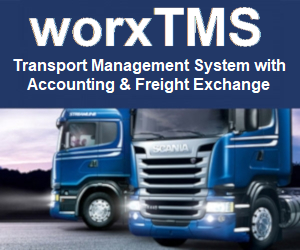
The haulage industry plays a vital role in the global economy, transporting goods that keep our businesses and daily lives moving. For this reason, iDuct, a provider of ducting solutions, has produced this article to address the importance of planning for a sustainable future in this crucial industry.
With advancements in technology and an increasing focus on sustainability, the future of haulage is rapidly changing.
In recent years, there has been a push towards the electrification of HGVs. Global sales of heavy-duty electric trucks more than doubled in 2021 compared to the previous year. In contrast, sales of traditional HGVs remained unchanged.
By offering this article, iDuct hopes to provide valuable insights and information to help companies in the haulage industry become more sustainable.
Why you should prepare for a sustainable future
The primary driving force behind this shift is the haulage industry’s desire to reduce carbon emissions and improve its environmental impact. Electrical HGVs offer several advantages over traditional diesel trucks.
- Lower emissions and expenses
Firstly, HGVs produce zero emissions, reducing the industry’s effect on air quality. Additionally, electric trucks are more energy efficient and require less maintenance, resulting in reduced operating costs for haulage companies.
- More quality of life
The benefits of electric HGVs also extend to drivers and passengers. With smoother and quieter engines, electric trucks provide a more comfortable driving experience. Furthermore, reduced noise levels in urban areas can lead to a better quality of life for those living near busy roads.
- Competitive advantage
Another reason to prepare for a green future is to stay ahead of the competition. The demand for sustainable transportation solutions is rapidly increasing, and companies ahead of the curve in adopting electric HGVs will have a competitive advantage. This can help businesses win new customers and retain existing clients, who are increasingly looking for sustainable transportation options.
- Compliance
Legislation plays a critical role in shaping the future of the haulage industry, particularly in the transition to sustainable transportation solutions. Governments worldwide are implementing policies and regulations to reduce greenhouse gas emissions and improve sustainability. These policies can significantly impact the haulage industry, and companies that are not prepared may find themselves at a disadvantage.
Many governments are setting targets for reducing emissions from the transportation sector and offering incentives to companies that adopt electric HGVs. For example, the UK’s Transport Decarbonisation Plan (TDP) will set a pathway to achieving net zero emissions across every single mode of transport by 2050.
In addition, there may be penalties for companies that do not reduce their environmental impact. These policies can create a level playing field for companies in the haulage industry, but they can also present challenges for those that are not prepared.
By understanding the legislation surrounding charging infrastructure, companies can ensure that they are well-positioned to take advantage of the benefits of electric HGVs.
The challenges
Despite these advantages, several obstacles still exist when it comes to the adoption of electric HGVs. Currently, they account for only 0.3% of the market.
The industry’s primary challenge is the lack of charging infrastructure, making it difficult for haulage companies to switch to electric trucks. Also, electric HGVs are still more expensive than their diesel counterparts, which makes it challenging for small and medium-sized carriers to update their fleets. The future, however, looks promising.
Governments worldwide are investing in the development of charging infrastructure, and advances in battery technology are making electric trucks more affordable. It is expected that, within the next decade, electric HGVs will become the norm, making the haulage industry more sustainable and environmentally friendly.
The electrical future for heavy good vehicles
Many companies around the world are already shaping the future.
Tevva, a UK-based electric truck start-up, has obtained the necessary approvals for its first full-production vehicle. The maker’s 7.5-tonne truck has a range of up to 141 miles and is ready for mass production. The first batch of 20 trucks left Tevva’s Tilbury-based factory in the first week of January. The company plans to manufacture around 1000 trucks annually by the end of 2023.
Scania is also part of the efforts to make the industry more electric and, thus, sustainable. The company has launched its latest innovation, the Regional Battery Electric Truck, which promises to be a clean, efficient daily vehicle. With just one hour of charging, the truck can travel 186 miles, and a full charge can be achieved in less than 90 minutes.
This new electric truck, available in rigid and tractor unit models, offers seamless gear changes and optimal cabin temperature control.
In conclusion, the future of the haulage industry looks set to be dominated by electrical HGVs. With the benefits of reduced emissions, increased efficiency and an improved driving experience, it is only a matter of time before the industry fully embraces electrification.



